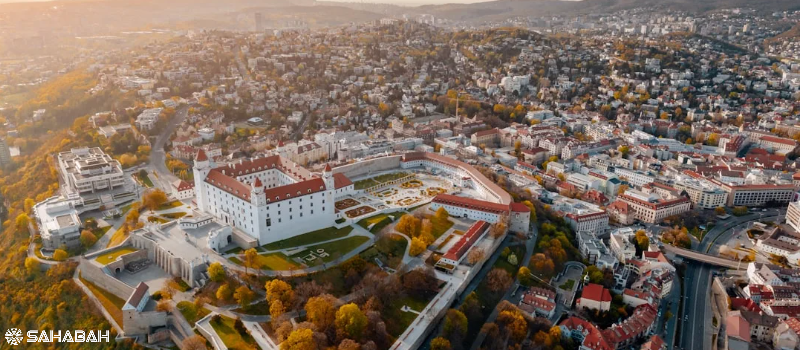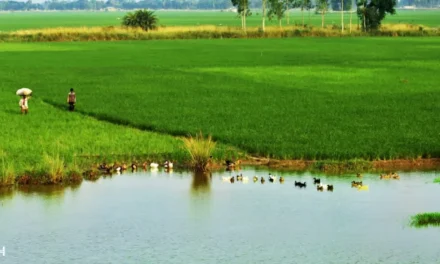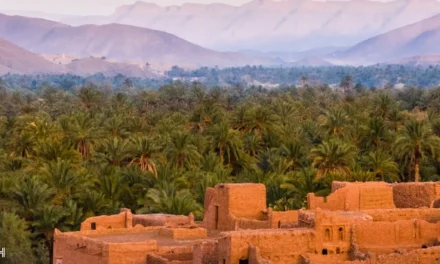The relationship between Slovakia and Israel is a multifaceted tapestry woven with historical events, political dynamics, and evolving foreign policies. This comprehensive article delves into the intricate ties between these two nations, shedding light on the key factors that have shaped their stance towards each other over the years.
Historical Context
Slovakia’s Recognition of Israel
Slovakia officially recognized Israel as a sovereign state on January 1, 1993, following the dissolution of Czechoslovakia. This pivotal moment marked the beginning of formal diplomatic relations between the two countries.
The Holocaust and Jewish Heritage in Slovakia
During World War II, Slovakia played a tragic role in the Holocaust, with thousands of Slovak Jews being deported to concentration camps. In the aftermath, preserving Jewish cultural heritage and memorializing the past has been a significant endeavor for the Slovak Republic.
Political and Diplomatic Relations
Diplomatic Ties and Embassies
Slovakia and Israel established diplomatic relations in 1993, and both countries have maintained embassies in each other’s capitals since then:
- Slovak Embassy in Tel Aviv
- Israeli Embassy in Bratislava
These embassies serve as vital channels for fostering cooperation and addressing bilateral concerns.
Slovakia’s Voting Patterns at the United Nations
At the United Nations, Slovakia’s voting patterns on resolutions related to Israel and the Israeli-Palestinian conflict have been closely watched. While Slovakia has generally aligned with the European Union’s stance, its votes have sometimes diverged, reflecting the complexities of the issue.
High-Level Visits and Agreements
Over the years, several high-level visits have taken place between Slovak and Israeli leaders, including Prime Ministers and Foreign Ministers. These visits have facilitated the signing of various bilateral agreements, strengthening cooperation in areas such as:
- Trade
- Education
- Security
Economic and Trade Ties
Trade and Investment
The economic relationship between Slovakia and Israel has steadily grown, with trade volumes increasing in recent years. Major sectors of cooperation include:
- Automotive industry
- Information and communication technologies
- Agriculture and food processing
- Renewable energy
Business Opportunities and Challenges
While opportunities for collaboration exist, both countries have acknowledged the need to address barriers to increased economic engagement, including:
- Regulatory hurdles
- Market access issues
- Need for greater awareness of each other’s business landscapes
Cultural and Academic Exchanges
Educational and Research Collaborations
Slovak and Israeli universities and research institutions have forged partnerships, facilitating scholarly exchanges and joint projects. These collaborations have spanned fields such as:
- Science
- Technology
- Humanities
…fostering cross-cultural understanding and knowledge sharing.
Cultural Initiatives and People-to-People Ties
Cultural initiatives, including:
- Art exhibitions
- Music festivals
- Literary events
…have played a crucial role in promoting cultural understanding between Slovakia and Israel. Additionally, the presence of diaspora communities in both countries has contributed to strengthening people-to-people ties.
Slovakia’s Position on the Israeli-Palestinian Conflict
Stance on Key Issues
Slovakia’s stance on the Israeli-Palestinian conflict has been shaped by its membership in the European Union and its commitment to a two-state solution. While supporting Israel’s right to exist and defend itself, Slovakia has also advocated for the establishment of a viable Palestinian state based on pre-1967 borders.
Humanitarian Aid and Support for Palestinians
Slovakia has provided humanitarian aid and development assistance to the Palestinian territories, focusing on areas such as:
- Education
- Healthcare
- Infrastructure development
However, it has sought to balance its support for Palestinians with maintaining strong ties with Israel.
Public Opinion and Civil Society
Perceptions of Israel in Slovak Society
Public opinion in Slovakia regarding Israel and the Israeli-Palestinian conflict has been diverse, reflecting the complexities of the issue. While some segments of society have expressed support for Israel, others have been critical of its policies towards the Palestinians.
The Role of NGOs and Advocacy Groups
Non-governmental organizations (NGOs) and advocacy groups have played an active role in shaping public discourse and influencing policy decisions related to Slovakia’s relationship with Israel. These groups have advocated for various positions, ranging from strengthening ties with Israel to supporting Palestinian rights.
Conclusion
The relationship between Slovakia and Israel is a complex tapestry, interwoven with historical legacies, political considerations, and evolving foreign policy priorities. While the two countries have maintained diplomatic ties and cooperated in various spheres, their stances on the Israeli-Palestinian conflict have sometimes diverged. As the situation in the region continues to evolve, Slovakia’s position may adapt, reflecting its commitment to finding a sustainable solution that addresses the concerns of both parties. Ultimately, the future of this relationship will be shaped by ongoing dialogue, mutual understanding, and a shared pursuit of peace and stability in the region.
FAQs: Does Slovakia Support Israel?
Slovakia maintains bilateral relations with Israel and recognizes it as a state. The two countries are full members of the EU and have embassies established in each other’s capitals.
What is Slovakia’s stance on Palestine?
Slovakia recognizes Palestine as a state and has diplomatic relations with Palestinian authorities. The country supports a two-state solution to the Israel-Palestine conflict.
How does Slovakia contribute to the peace process between Israel and Palestine?
Slovakia actively engages in EU discussions and foreign affairs related to the Israel-Palestine conflict. The country advocates for peaceful resolutions and supports international efforts towards peace in the region.
Is there cooperation between Slovakia and Israel in other areas besides politics?
Yes, besides diplomatic relations, Slovakia and Israel collaborate in areas such as trade, technology, and cultural exchanges. Both countries seek to strengthen their ties beyond the political realm.
When did Slovakia officially recognize a Palestinian state?
Slovakia officially recognized Palestine as a state in 2023, showing its commitment to supporting Palestinian aspirations for statehood.
What role does the Ministry of Foreign and European Affairs of Slovakia play in relations with Israel and Palestine?
The Ministry of Foreign and European Affairs of Slovakia oversees the country’s foreign relations, including those with Israel and Palestine. It plays a significant role in shaping Slovakia’s position on international issues, including the Israel-Palestine conflict.
How does the recognition of a Palestinian state impact Slovakia’s foreign policy?
Recognizing Palestine as a state aligns with Slovakia’s commitment to international law and supporting the rights of all nations to self-determination. This stance influences Slovakia’s foreign policy decisions regarding the Middle East and its relationships with both Israel and Palestine.





